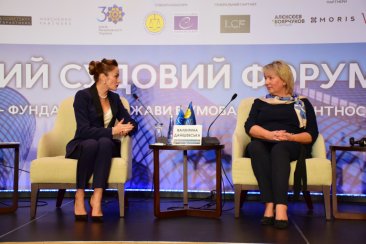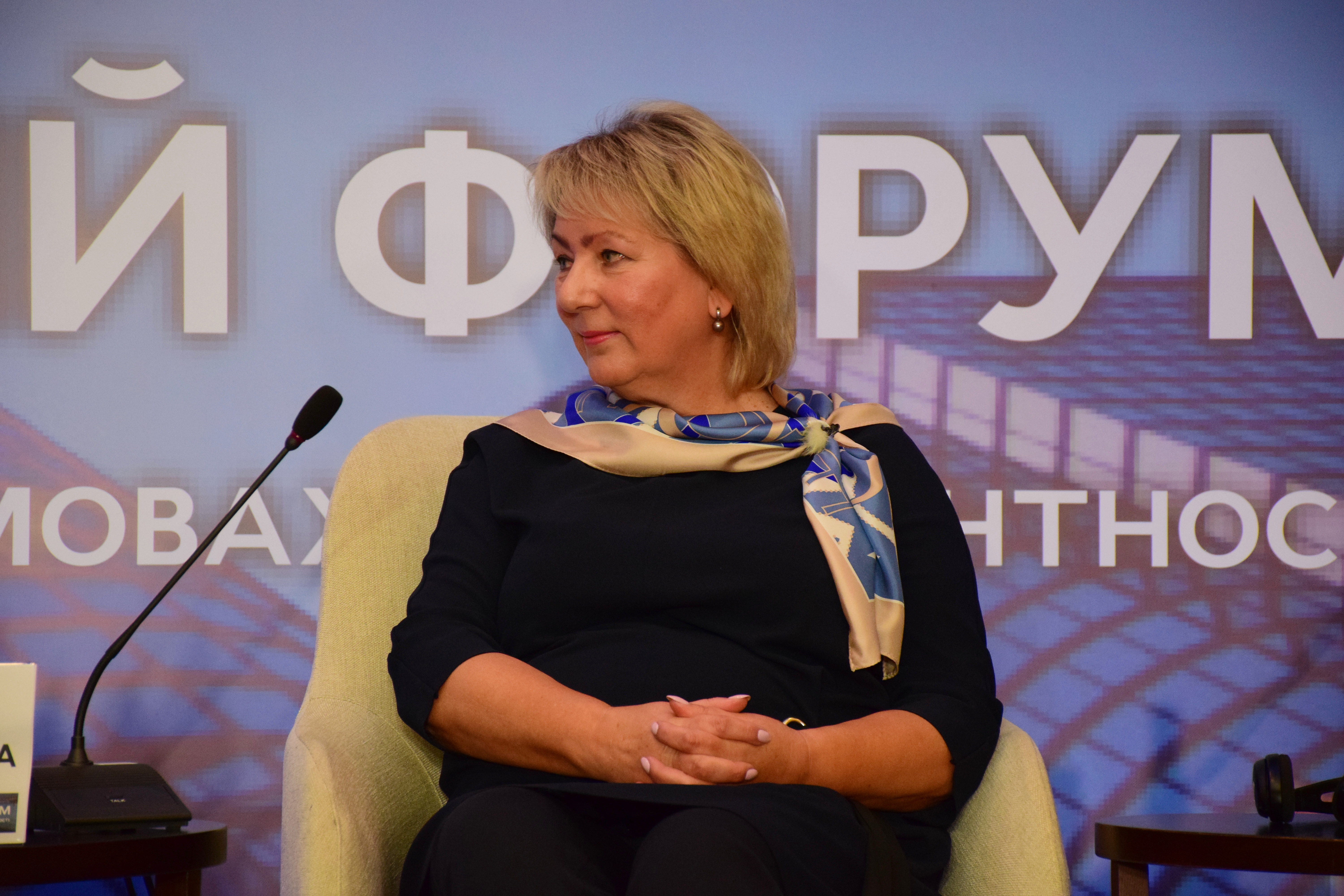Contact center of the Ukrainian Judiciary 044 207-35-46

The X Annual Judicial Forum of the Ukrainian Bar Association was held on September 30 - October 1, 2021; it was co-organized by the Council of Europe project "Support to the implementation of the judicial reform". The topic of this year's forum is “Independent judiciary – the basis of the state in time of turbulence”.
SC President Valentyna Danishevska and President of the Ukrainian Bar Association, Managing partner at LCF Law Group, Program Coordinator of the Forum Anna Ohrenchuk discussed the risks and prospects of judicial reform in the EXPERT TALK format.
Valentyna Danishevska stressed that the Ukrainian Bar Association had created an excellent platform for discussing extremely sensitive issues for the judiciary, and thanked the Council of Europe for its timely response to requests and problems of the judiciary. The President of the Supreme Court drew attention to the well-chosen topic of the event and to the fact that everyone in the audience understood that an independent judiciary was the foundation of the state. "That is what we are fighting for," she said.
“As the President of the Supreme Court, I had started working on the reform long before the laws themselves were adopted. I made sure that the delicate topic would not lead to a "rattling" of powers among the highest bodies of state power. We managed to soften the rhetoric a little, but we haven't reached absolute mutual understanding yet,” said Valentyna Danishevska.
The President of the Supreme Court emphasized that judicial reform cannot be done without the judiciary: “This is our reform, we want it. We will be implementing it in order to develop ourselves and provide quality services to people. But we cannot achieve this on our own, we need the help of both Parliament and Government. However, we cannot allow any, albeit good intentions, to unbalance the constitutional order in the state. We cannot allow anyone to be given the power to stop the judiciary for even a day or an hour. The judiciary balances other branches of government, without the judiciary there is no democratic order of the state."

One of the most serious concerns is the fact that the Ethics Council is given the opportunity to suspend the powers of all HCJ members. According to the SC President, such a risk is quite real, given the rhetoric that accompanies the reform process. "The legislature cannot function without the Verkhovna Rada of Ukraine, the executive - without the Cabinet of Ministers of Ukraine, and the judiciary will not be able to function without the HCJ" said Valentyna Danishevska. She is convinced that the Ethics Council cannot be given such powers as they will hinder the achievement of the goal of judicial reform, and suggested an alternative option: for the Ethics Council to select candidates for vacant HCJ positions and only then to be able to invite the members of the Council to be vetted. Such a model will make it possible not to violate the Constitution of Ukraine and to balance the constitutional order.
Valentyna Danishevska also analyzed the extremely negative consequences of a non-functioning HCJ: suspension of human resources processes, termination of the participation of the judiciary in budgetary and legislative processes, encroachment on judicial independence without a proper response. “At one time we have already gone through this. The Supreme Council of Justice, as it was then called, and the High Qualification Commission of Judges did not work for about a year. But now the powers of the HCJ are much broader, and the term of the non-functioning HQCJ is now being calculated in years rather than months. The judicial bodies can be renewed, not destroyed,” the President of the Supreme Court drew the attention of those present.
Anna Ohrenchuk called on all participants in the process to find common grounds as soon as possible, as the protracted crisis reduces the chances of its successful resolution. The entire legal community seeks one thing - fair justice.
Valentyna Danishevska added that all participants involved in judicial reform should treat each other with respect, perceive and understand each other, and dispose of everything that hinders constructive work. It is extremely difficult to achieve a positive result without joint efforts. And the negative manifestations are already noticeable.